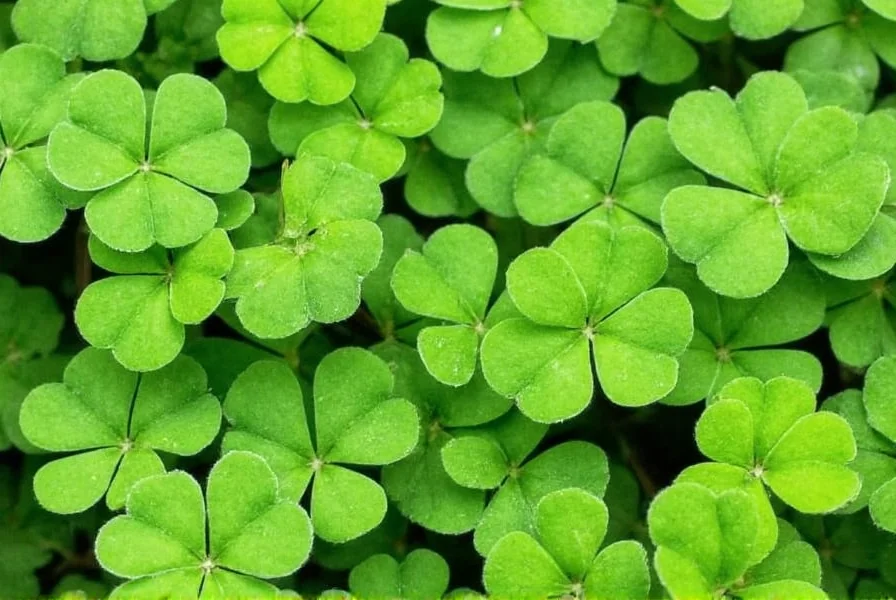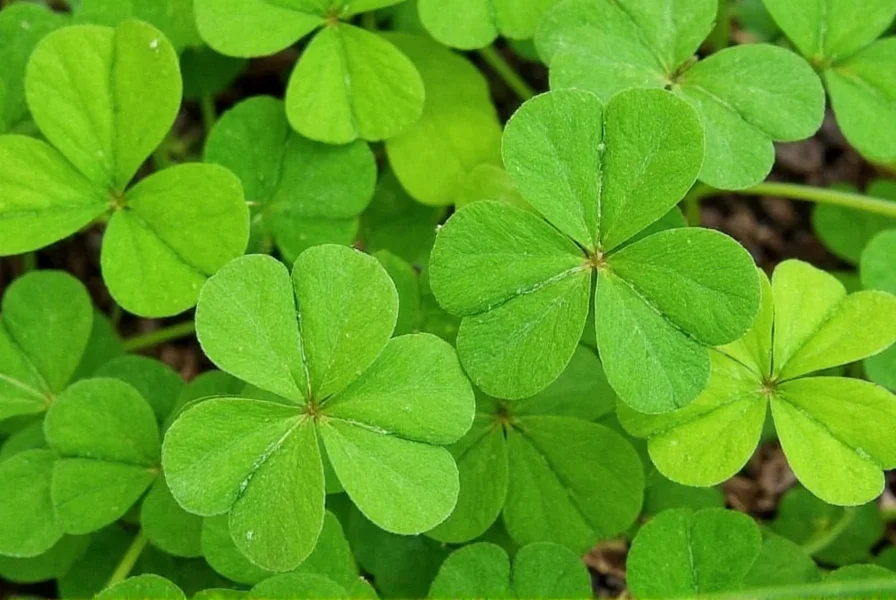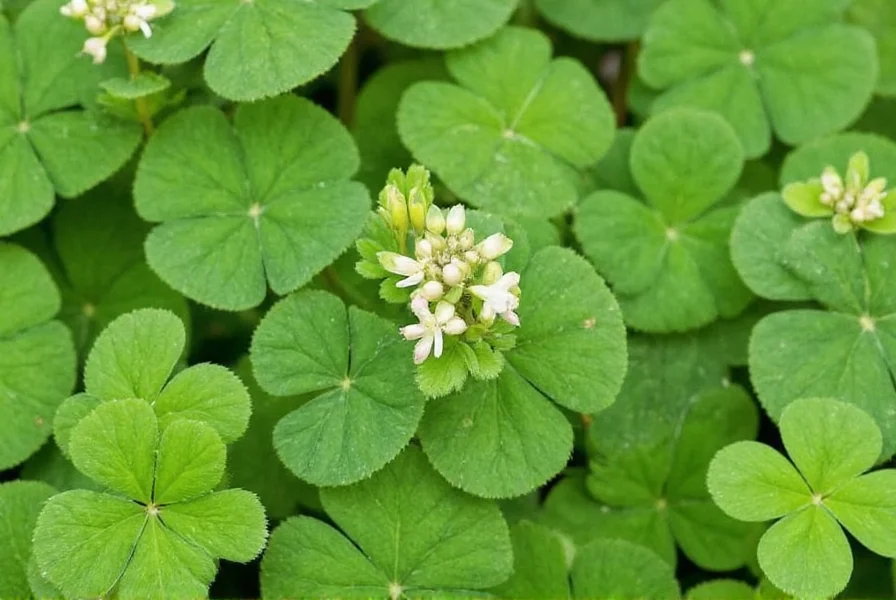When considering clover seed bulk purchases, understanding the different varieties and their specific applications is essential for successful implementation. Clover has gained significant popularity as an eco-friendly alternative to traditional turf grass, offering numerous environmental benefits while requiring less maintenance.
Understanding Clover Varieties Available in Bulk Quantities
Clover seed sold in bulk comes in several varieties, each with distinct characteristics suited to different applications. The primary types include:
| Clover Variety | Height Range | Best Applications | Seeding Rate (per acre) |
|---|---|---|---|
| White Clover (Ladino) | 4-12 inches | Lawn enhancement, pasture mixes | 8-12 lbs |
| Microclover | 2-6 inches | Low-maintenance lawns | 4-6 lbs |
| Red Clover | 12-30 inches | Soil improvement, forage | 10-15 lbs |
| Crimson Clover | 12-24 inches | Cover cropping, erosion control | 15-20 lbs |
When buying clover seed in bulk, white clover remains the most popular choice for residential applications due to its low-growing habit and ability to withstand moderate foot traffic. Microclover, a dwarf variety of white clover, has gained traction among homeowners seeking the perfect clover seed bulk for lawn renovation projects as it grows more uniformly with traditional grasses.
Environmental and Practical Benefits of Bulk Clover Seed
The growing interest in organic clover seed bulk options stems from several compelling advantages over conventional turf grass:
- Nitrogen fixation - Clover naturally enriches soil by converting atmospheric nitrogen into plant-usable forms, reducing or eliminating the need for synthetic fertilizers
- Drought tolerance - Once established, clover requires significantly less water than traditional grass varieties
- Pollinator support - Clover flowers provide essential nectar sources for bees and other beneficial insects
- Weed suppression - Dense clover growth naturally crowds out many common lawn weeds
- Year-round green - Many clover varieties maintain color longer into dry seasons compared to grass
For agricultural applications, clover seed bulk for pasture improvement offers substantial benefits for livestock operations. Red clover provides excellent forage quality with high protein content, while white clover creates a more diverse and resilient pasture ecosystem.
Calculating Your Clover Seed Bulk Requirements
Determining the proper amount of clover seed bulk you need requires careful calculation based on your specific project. The general rule for pure clover stands is:
- Residential lawns: 1-2 pounds per 1,000 square feet
- Pasture establishment: 8-12 pounds per acre
- Erosion control: 15-20 pounds per acre
- Wildlife habitat: 5-8 pounds per acre
When overseeding existing lawns with clover seed bulk for lawn enhancement, use approximately half these rates. Remember that how much clover seed per acre you need depends on your soil conditions, climate, and whether you're establishing a new stand or overseeding.

Planting and Establishment Guidelines
Successful establishment of clover seed bulk requires proper preparation and timing:
- Soil preparation - Clover prefers well-drained soil with pH between 6.0-7.0. Conduct a soil test before planting and amend as needed.
- Planting season - Spring (March-May) or early fall (August-September) provide optimal soil temperatures for germination.
- Seed-to-soil contact - Lightly rake seeds into the top 1/8 inch of soil or use a slit-seeder for best results.
- Watering schedule - Keep soil consistently moist until seedlings establish (about 2-3 weeks).
- Fertilization - Avoid high-nitrogen fertilizers which favor grass over clover.
For those considering clover seed bulk for erosion control, crimson clover often proves most effective due to its rapid establishment and deep root system. When planting on slopes or disturbed soil, consider mixing with a temporary cover crop like annual ryegrass to provide immediate stabilization.
Common Mistakes to Avoid with Bulk Clover Seed
Many clover seed bulk projects fail due to preventable errors. Watch out for these common pitfalls:
- Overseeding - Excessive seeding rates lead to overcrowding and weak plants
- Poor soil preparation - Clover won't establish well in compacted or nutrient-poor soil
- Incorrect mowing height - Mowing too short stresses clover plants
- Applying broadleaf herbicides - Most weed killers will eliminate clover along with weeds
- Expecting immediate results - Clover establishment typically takes 4-8 weeks
When purchasing clover seed bulk pricing becomes a consideration, remember that higher quality seed with better germination rates often provides better value despite slightly higher upfront costs. Look for seed with a germination rate of at least 80% and minimal weed seed content.

Seasonal Maintenance for Established Clover
Once established, clover seed bulk plantings require minimal maintenance compared to traditional lawns:
- Watering - Established clover needs about 1 inch of water per week during dry periods
- Mowing - Mow to 2-3 inches when flowering begins to encourage new growth
- Weed control - Hand-pull persistent weeds; avoid chemical herbicides
- Re-seeding - Lightly overseed thin areas every 2-3 years to maintain density
- Winter care - Most clover varieties go dormant but return in spring
For those using clover seed bulk for pasture applications, rotational grazing practices help maintain stand longevity. Allow plants to reach 6-8 inches before grazing and avoid grazing below 2-3 inches to preserve root health.











 浙公网安备
33010002000092号
浙公网安备
33010002000092号 浙B2-20120091-4
浙B2-20120091-4